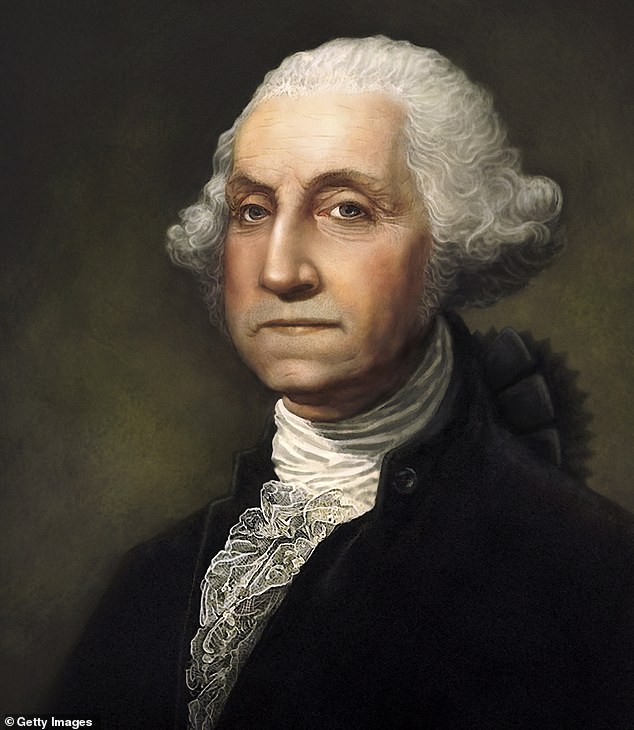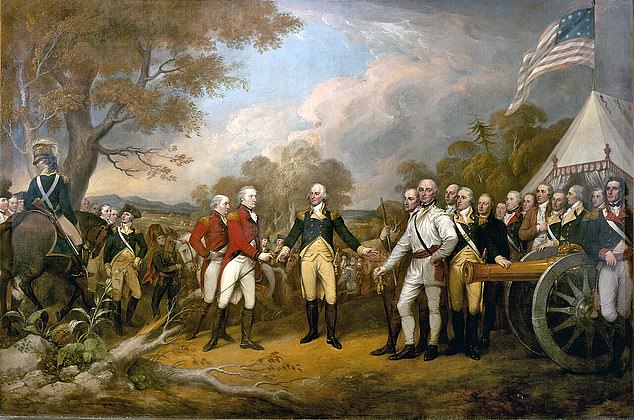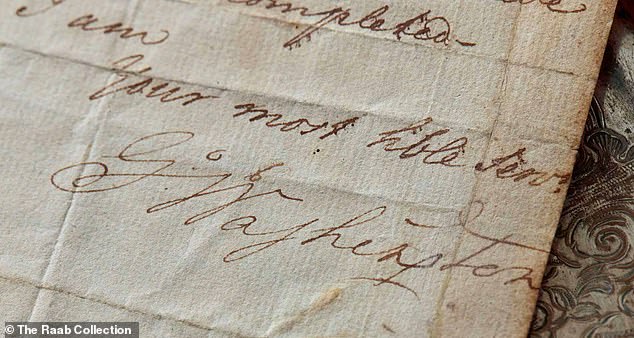Unique George Washington letter written in 1777 in which he says God and Heaven back American independence emerges for sale for the first time
Unique George Washington letter from 1777 in which he says God and heaven back American independence is for sale for the first time
- Letter written by George Washington in 1777, thought to be lost, is offered for sale
- Letter is just a Revolutionary War letter from Washington that mentions “Heaven.”
- It has been valued at $275,000 by Raab Collection auction house in Philadelphia
A unique letter written by George Washington saying God and Heaven supported American independence has gone on sale after historians thought it had been lost.
Written in October 1777, shortly after Washington learned of the first victory over British forces during the Revolutionary War, it went on sale yesterday in Philadelphia.
The auction house, Raab Collection, acquired it from descendants of the recipient, Brigadier James Potter.
It had been in the possession of Potter’s descendants for almost 250 years and is valued at $275,000. Potter was a colonial and Revolutionary-era politician from Pennsylvania who assumed important commands during the Revolutionary War.
This letter is unique because it is the only one in which Washington mentioned “heaven” during the war.
This letter is unique because it is the only one in which Washington mentioned “heaven” during the war

It was written in October 1777, shortly after Washington learned of the first victory over British forces during the Revolutionary War

The Battle of Saratoga, New York, was the first battle fought by revolutionary forces over the British
Washington put pen to paper shortly after learning of the outcome of the Battle of Saratoga, in October 1777, the first victory of revolutionary forces over the British.
Exultingly, Washington wrote that “this special favor of Providence must be received with gratitude and at the happy hour which Heaven has appointed for the firm establishment of American Liberty.”
Although the contents of the letter were known to scholars, the original document was thought to have been lost.
Washington urged his fellow Americans to support independence in the letter, sent from near Philadelphia on October 18, 1777.
“This letter brings together in its beauty many of the threads of the American experience: God, patriotism, victory, destiny,” said Nathan Raab, director of The Raab Collection and author of The Hunt for History.
“Its discovery is exciting and proof that Washington’s words continue to inspire,” he added.

Written in October 1777, shortly after Washington learned of the outcome of the Battle of Saratoga, it makes clear that he understood its importance
The Raab Collection could find no other similar letter from Washington from that day.
It was written shortly after Washington was defeated by British forces at the Battle of Germantown, near Philadelphia. His depressed mood was lifted by information from Saratoga.
Many historians consider the Battle of Saratoga a turning point in the war, and the language in the letter indicates that its importance was clear to Washington at the time.
In addition to celebrating the battle and the revolutionary cause, Washington instructed Potter to continue working to disrupt British supply lines.
